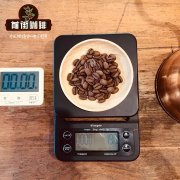The characteristics of Yemeni coffee what is the ancient solarization of Yemeni coffee? Yemeni mocha treatment

Professional coffee knowledge exchange more coffee bean information please follow the coffee workshop (Wechat official account cafe_style)
Yemen is a classic of the ancient morning taste of the sun, and it is also the only producer of full-time coffee in the world. the traditional treatment of dripping water is illegal, and it has not changed since Europe became infatuated with game mocha in the 17th century. This is related to the extremely dry climate in Shumen, where coffee is mainly grown in the central highlands, with an average annual rainfall of only 400 Mel 750 mm, far less than the best rainfall of 1500 Mel 2000 mm in Arabica. Due to the lack of water environment, farmers have been unable to introduce more advanced washing methods, wild flavor is better than Hara coffee, so Yemen has become the best choice to experience the ancient early taste.
The highlands of central Yemen are hilly and rugged. Most small farmers use the planting method of breaking up into parts. Several plants are planted on steep slopes and dozens of plants are planted on terraces or cliffs, each with different soil and water and micro-climate, so the fragrance composition is also different.
The sun treatment of Yemeni farmers is rougher than that of Ethiopia. Coffee berries grow naturally on trees without any artificial fertilizers or pesticides. In summer, they are moistened by a small amount of rain and fog on the hillside, blossom and bear fruit, and in dry winter, ripe coffee berries are allowed to hang on the trees to dry naturally until they naturally dry and turn purple-black on the branches, and then fall to the ground to pick them up. This is different from the exquisite sun in which Ye Jia Xuefei or Sidamo picks red fruit and lays it on the "elevated net bed", which is the main reason for the heavy game in Yemen.
The natural sun treatment in Yemen is to manually harvest fully mature coffee beans and directly place the newly harvested coffee beans in a special coffee drying yard or in their own compacted soil front yard to receive the sun. During the sun drying period with Taiwan, rice is usually turned over with a wooden rake to keep each bean evenly dried. After about 20 days of coffee drying, remove the outer pulp and peel from the coffee beans. Yemeni coffee is rich in flavor. Complex, wild, mellow, strong fermented taste and low acidity, coupled with the fact that Yemeni coffee often contains an uncertain factor (when it rains in the season), it is not too much to call it the most special coffee in the world.
Up to now, a small number of coffee farmers still use animals (such as camels and donkeys) as the power source of stone grinding. Compared with the Central and South American countries that use advanced machinery and equipment to deal with coffee beans in large quantities, and even neighboring Kenya, which has a short history of coffee, the Yemeni mocha is the only living monument in the coffee world. The Yemeni coffee drunk today is basically not much different from the "Arabian coffee" sipped and enjoyed by aristocratic businessmen in Europe hundreds of years ago in the Piazza San Marco in Venice, Italy.
Related recommendation: description of Yemeni coffee flavor and taste characteristics is Yemeni mocha coffee good?
Important Notice :
前街咖啡 FrontStreet Coffee has moved to new addredd:
FrontStreet Coffee Address: 315,Donghua East Road,GuangZhou
Tel:020 38364473
- Prev

Hand flushing skills of mocha Matali coffee | how does mocha coffee make Japanese volcanic flushing?
The method of volcanic flushing comes from Japan and is generally suitable for deep-roasted coffee beans. It uses the carbon dioxide contained in the beans, the coffee powder suspended on the surface has a heat preservation effect, which is similar to the principle of stewing, and the coffee powder at the water injection is bulging like a volcanic eruption. so deep-baked beans are more suitable because they release more carbon dioxide and can keep bulging for a long time.
- Next

What is the variety of Yemeni coffee? what is the variety of Yemeni mocha coffee?
Professional coffee knowledge exchange more coffee bean information Please pay attention to the coffee workshop (Wechat official account cafe_style) Yemeni mocha coffee has a long history. Mocha coffee is derived from mocha, added chocolate sauce, chocolate powder, mixed and concentrated mocha coffee is very popular. The natural sun treatment in Yemen is based on manual harvesting of fully mature coffee beans.
Related
- Beginners will see the "Coffee pull flower" guide!
- What is the difference between ice blog purified milk and ordinary milk coffee?
- Why is the Philippines the largest producer of crops in Liberia?
- For coffee extraction, should the fine powder be retained?
- How does extracted espresso fill pressed powder? How much strength does it take to press the powder?
- How to make jasmine cold extract coffee? Is the jasmine + latte good?
- Will this little toy really make the coffee taste better? How does Lily Drip affect coffee extraction?
- Will the action of slapping the filter cup also affect coffee extraction?
- What's the difference between powder-to-water ratio and powder-to-liquid ratio?
- What is the Ethiopian local species? What does it have to do with Heirloom native species?

